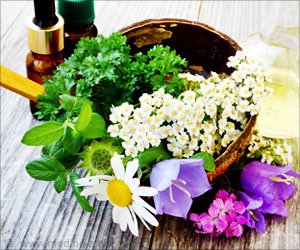7 Cooling Herbs to Quench Your Thirst This Summer

Summer heat calls for the body to drink more fluids to compensate for the water lost through sweating. Therefore, it is important to drink 2 to 3 liters of water every day. While considering other options to hydrate yourself, people mostly prefer store-bought drinks full of sugar and artificial dyes. Now, you can consider herbs as an option for cooling down on a hot day.
Most herbal traditions classify herbs as either heating, cooling, or neutral. So, if the heat’s got you down, focus on herbs that are known for their cooling properties. Here is a list of herbs that will help you beat the heat.
Cooling Action of Herbs
There is a difference between something cool to the touch or taste buds and something that cools the body down. The action the herb has on the body is known as “vīrya” in Ayurveda. Achieving cooling by cool temperature only remains for a while. Once it interacts with the body temperature and the digestive fire acts on it, that cooling temperature is gone.
While the sensation of cold foods, like ice cream, may provide temporary psychological relief, it does not do anything to lower your overall body temperature. On the other hand, cooling herbs act on your body’s tissues, not just your taste buds (1✔ ✔Trusted Source
Ethnobotanical survey of cooling herbal drinks from southern China
Go to source
).Cooling Herbs: Benefits and Uses
Coriander
: Coriander, or cilantro may have antioxidant, anticancer, and neuroprotective properties. It is also shown to have a positive effect on blood sugar in rats, though more studies including humans are needed. Dhanyak hima (coriander and barley-infused drink) is a drink made by crushing, mixing, and soaking coriander seeds and barley overnight. The infused water can be then had either first thing in the morning or throughout the day to reduce burning sensations and indigestion (2✔ ✔Trusted Source
Coriander (Coriandrum sativum): A promising functional food toward the well-being
Go to source
).
Mint
: Mint is well-known for its cooling sensation, and it’s often used in lip balms, cough syrups, and even alcoholic drinks. A few varieties of mint include spearmint, peppermint, and pennyroyal. Drink it as tea for instant relief.
Lavender
: This popular aromatherapy ingredient is commonly used in cosmetics and soaps. Human studies indicate that lavender may be beneficial for anxiety, depression, insomnia, and migraine. Diffuse it; apply it topically; and add it to baths, cosmetics, and beverages.
Indian Redwood
: also known as Pathimugam is known for its ability to purify the blood, treat ulcers, lower cholesterol, and fight obesity. Just chop the bark of the tree into small pieces, boil it in water for less than five minutes, and wait until it turns a light pink hue. After straining and cooling, you can enjoy this drink with your meals or any time of the day to reduce the heating element in the body.
Parsley
: Another summer drink to promote the gut biome and heart health is parsley water. Rich in vitamins A, C, and K, as well as antioxidants, is known to uplift mood and calm the mind. Put a handful of chopped parsley leaves in a pitcher of water and gently press down the leaves with a wooden spoon. Leave it on for 30 minutes before drinking to allow the nutrients to be properly absorbed (3✔ ✔Trusted Source
Lavender and the Nervous System
Go to source
).
Basil
: Basil (tulsi) water known for its detoxifying properties is the go-to morning drink. Turns out, soaking not only makes nuts and herbs that much more nutrient-rich, but can also turn a glass of water into a healthy drink.
Lemongrass
: Lemongrass is another powerhouse herb that makes a cooling treat. A study showed that lemongrass had beneficial effects on skin inflammation in human trials. Lemongrass has a bright, citrusy scent and distinct flavor in Asian cuisine. You can add it to soups, curries, and sauces; use it in aromatherapy; or make it into a tea.
References:
- Ethnobotanical survey of cooling herbal drinks from southern China – (https://ethnobiomed.biomedcentral.com/articles/10.1186/1746-4269-9-82)
- Coriander (Coriandrum sativum): A promising functional food toward the well-being – (https://pubmed.ncbi.nlm.nih.gov/29433220/)
- Lavender and the Nervous System – (https://www.ncbi.nlm.nih.gov/pmc/articles/PMC3612440/)
Source: Medindia
Source link
#Cooling #Herbs #Quench #Thirst #Summer



